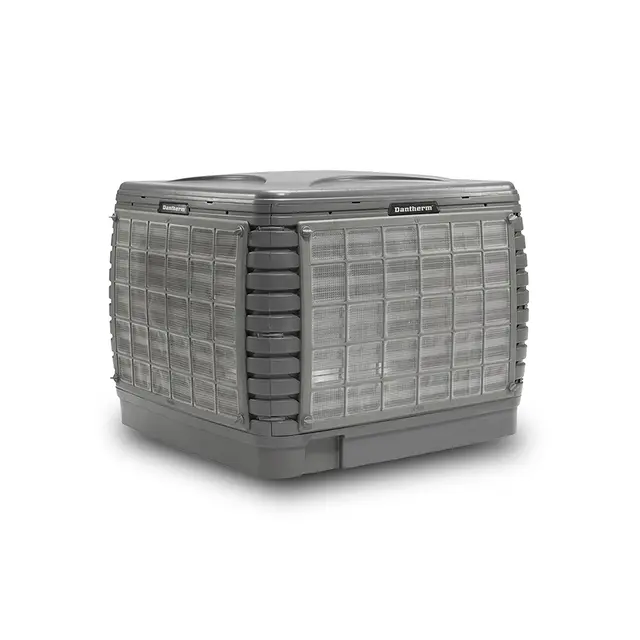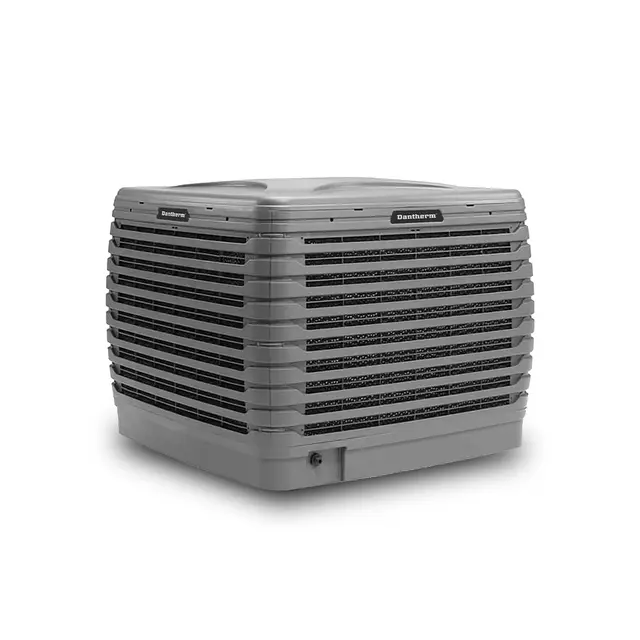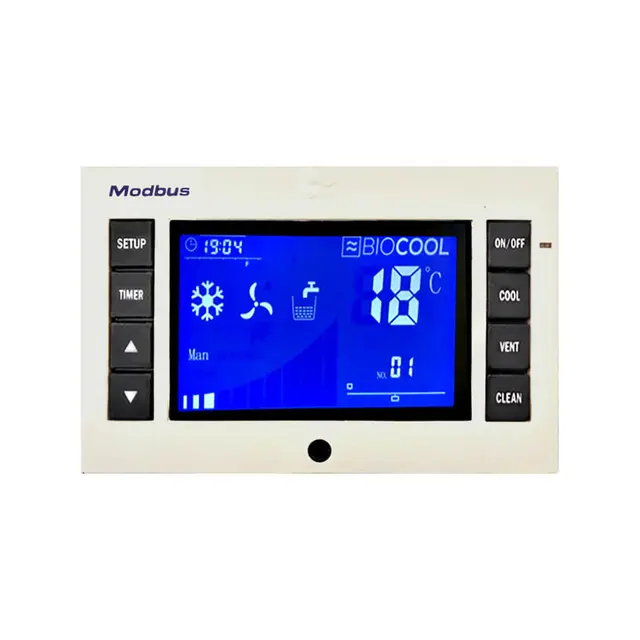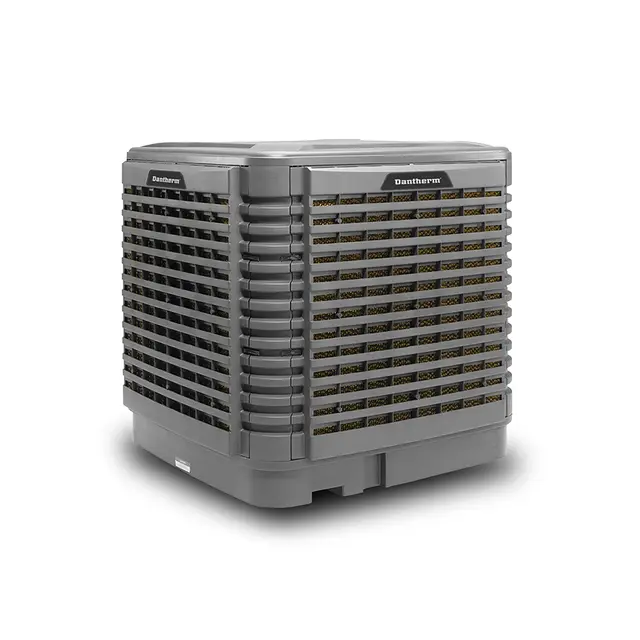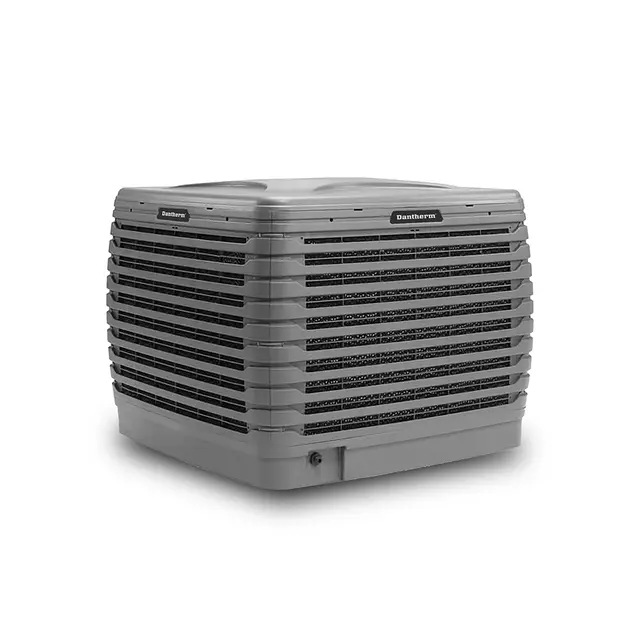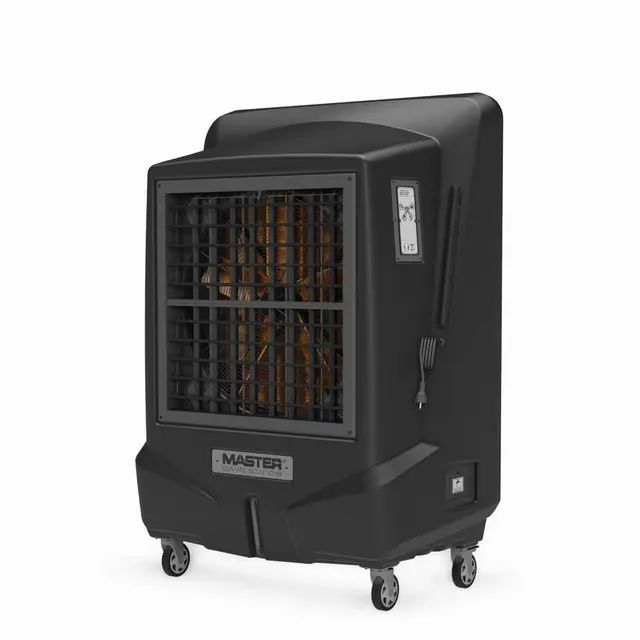How to cool a warehouse in hot conditions
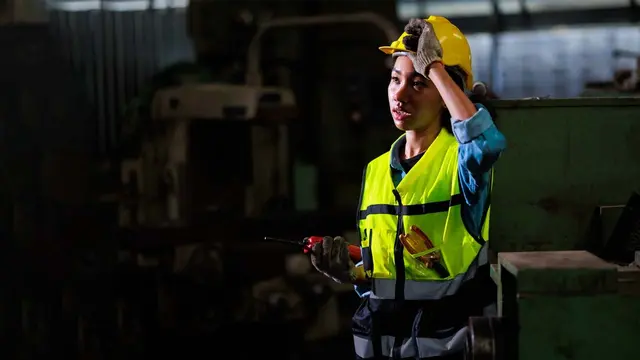
- Home
- Insights
- Cooling insights
- How to cool a warehouse in hot conditions
Keeping large warehouses cool can be a costly and energy-intensive task. However, by combining numerous techniques and evaporative cooling technology, teams can work to regulate the climate inside these commercial facilities with greater ease.
While it can often take tons of time and energy for warehouses to warm up due to their wide-open layout, it can take just as much effort to cool these spaces.
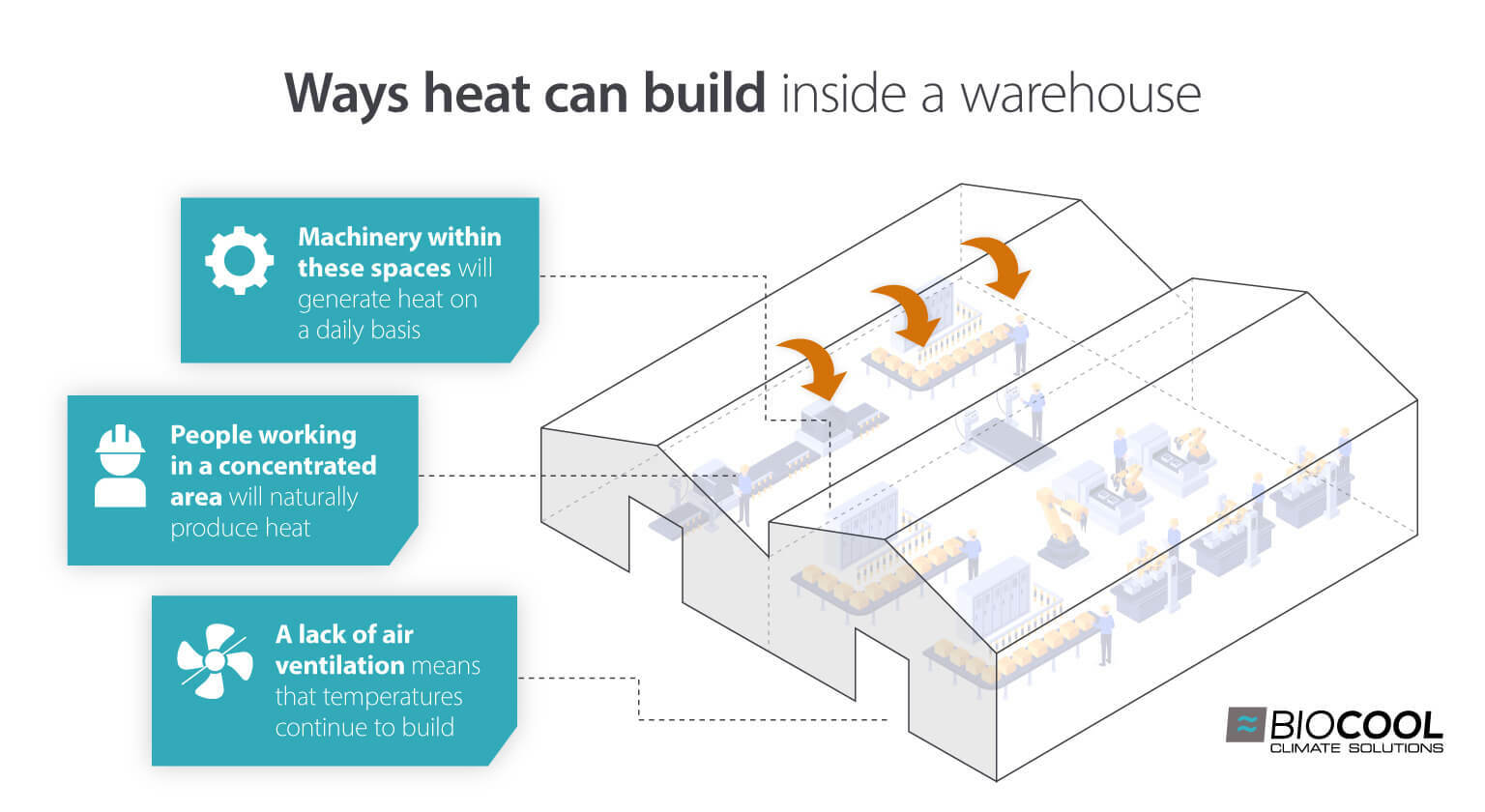
Additionally, in warmer months, the summer heat can quickly find its way inside commercial facilities, further adding to the tough conditions that teams and their equipment may be contending with.
Why it is important to cool warehouses
Given how easy it is for warehouses to warm up, and how hard it is to exhaust this hot air, having a dedicated solution in place to keep warehouses cool is vital. By making a concerted effort to regulate inside conditions, organisations can:
Keep teams safe
Consistently high temperatures can quickly become a hazard to health for employees working inside the facility. Extreme heat can trigger the onset of heat exhaustion, heatstroke and several other illnesses.
By cooling warehouse spaces, organisations create safer and healthier environments where teams can operate free from thermal stress. Moreover, cooler workspaces will keep staff focused, thereby reducing the likelihood of accidents occurring.
Enhance productivity
When people are uncomfortably hot, it is more difficult for them to focus and carry out tasks. Heat stress can impact the speed at which jobs are completed, as well as the standard they are finished to.
Circulating cool air regularly and maintaining optimal indoor conditions can allow workers to concentrate better, thereby improving staff productivity and efficiency.
Adhere to legal guidelines
Keeping conditions in warehouses at safe levels is not a luxury – it is a legal requirement in countries all over the world.
Organisations that fail to operate within acceptable parameters could face fines, legal challenges as well as damage to their customer and employer reputation.
Preserve the conditions of products
The job of many warehouses is to store goods. However, some products, such as perishables, are sensitive to heat and could be tarnished if exposed to temperatures too high.
Warehouse climate control can help preserve the condition of items stored in a facility by ensuring heat is not allowed to build to levels that may compromise the quality of products.
Techniques to reduce temperatures inside a warehouse
More often than not, warehouses rely on natural ventilation from open loading dock doors and windows to mitigate increases in temperature. However, in many scenarios, this technique is simply not enough on its own to keep spaces sufficiently cool.
While natural ventilation is a good first step, adopting a variety of other approaches at the same time can have faster and more effective results.
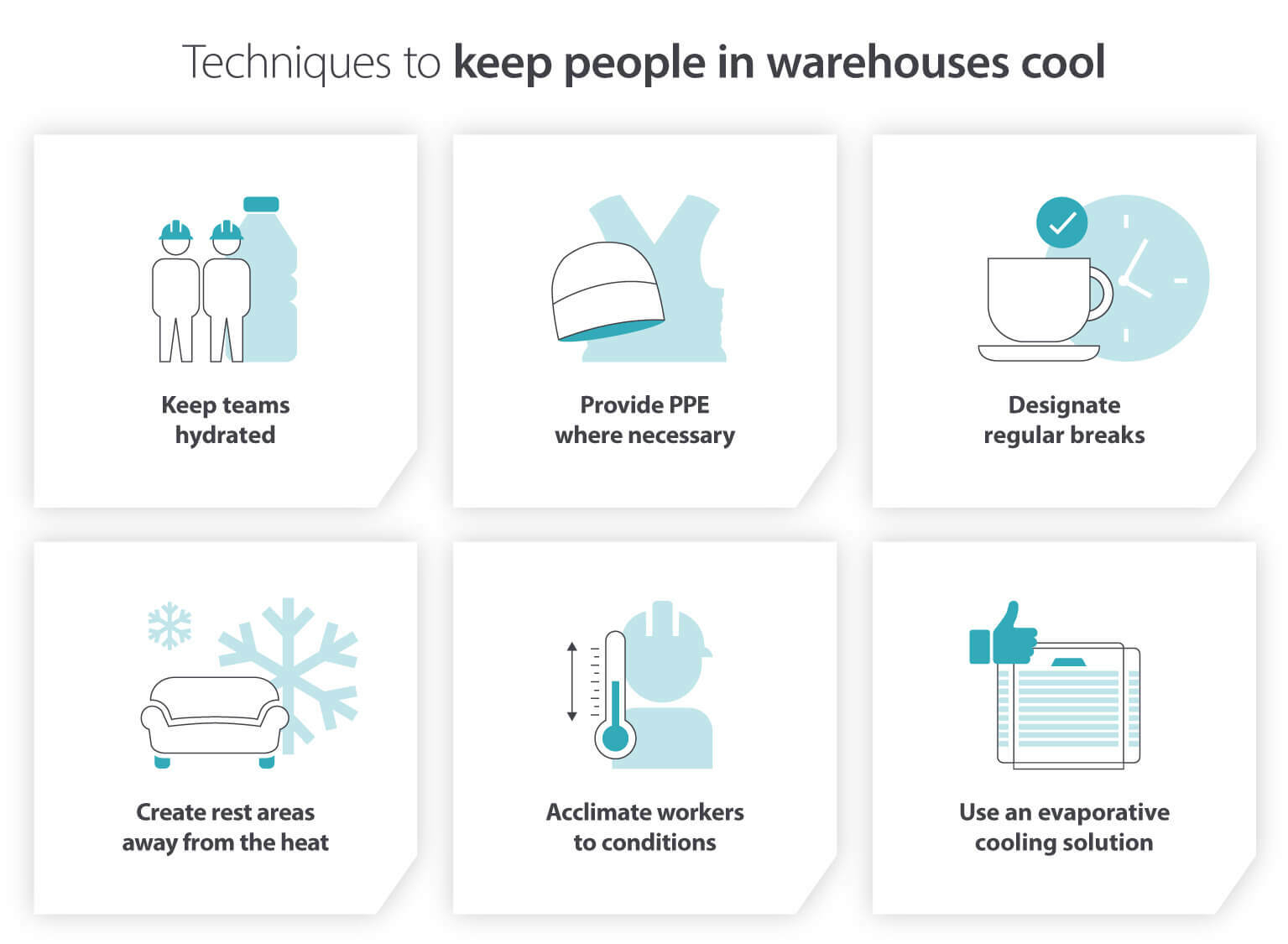
What equipment can be used to cool a warehouse?
For maximum cooling, it is important to harness the techniques we have discussed alongside dedicated cooling technology to keep temperatures down and air moving inside warehouses.
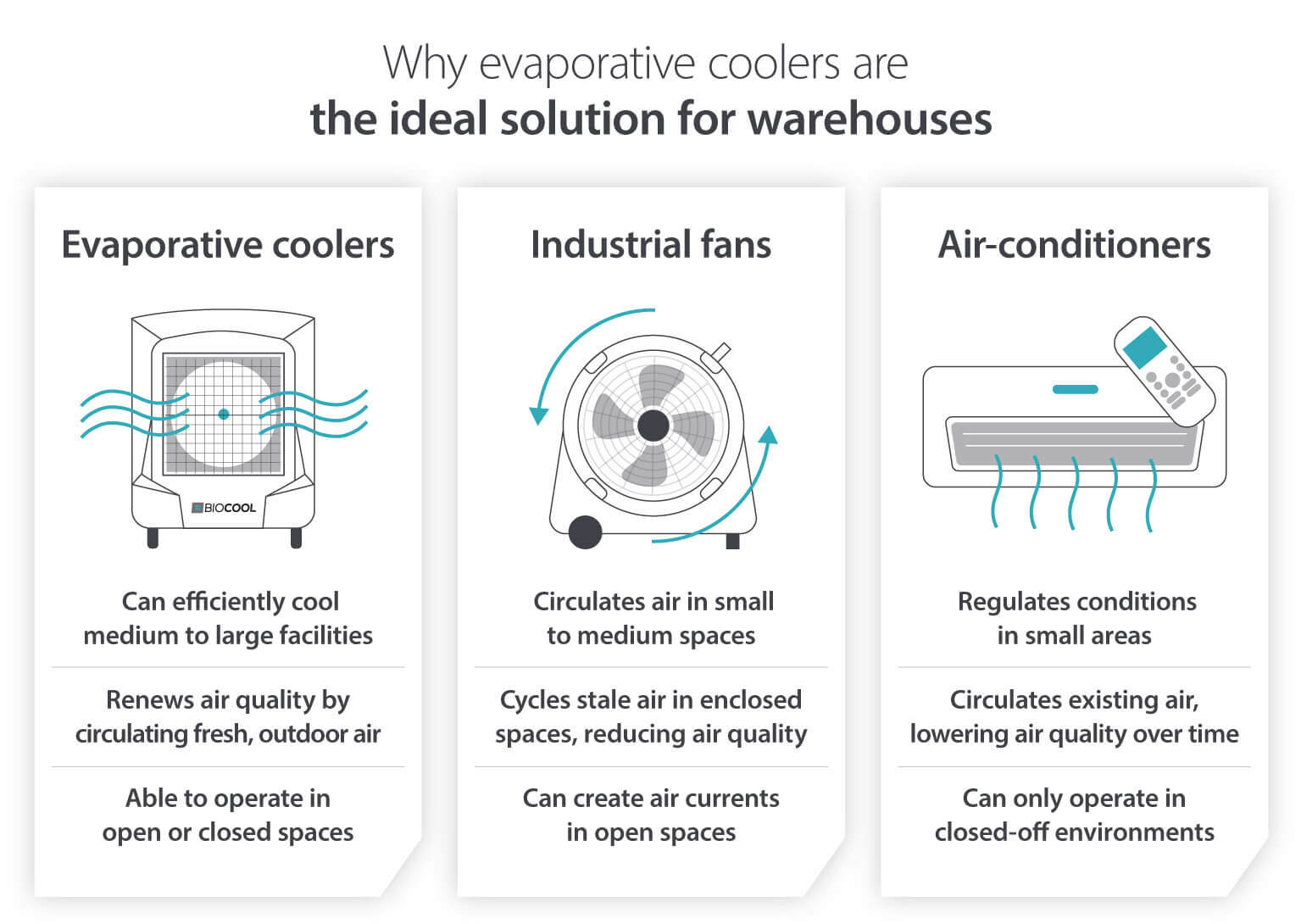
While there are a variety of conventional coolers on the market today such as fans and air-conditioners, evaporative cooling units are the optimal solution for warehouses. This is because they can deliver cool air to a wide area quickly and cost-effectively.
How evaporative coolers help reduce the heat in warehouses
Evaporative coolers work by drawing outside air into the units, forcing it through a series of damp membranes. The incoming air that comes into contact with the moist pads is cooled, as heat from the air and water from the membrane are evaporated together.
In practice, this natural process means evaporative cooling units are able to emit a constant stream of cool air across a wide area, which helps keep conditions manageable and comfortable inside large spaces such as industrial warehouses.
For more information, read our introduction to the application and advantages of evaporative cooling here.
Why are evaporative coolers better suited than alternative options?
How does the natural power of evaporative coolers compare with other technology, such as air-conditioning units and fans, to keep areas the size and scale of a warehouse at optimal temperatures? Let’s discuss it:
Air-conditioning units vs evaporative cooling
Air-conditioning, while well-suited in smaller spaces, is impractical in wide-open warehouses because the energy required to cool an area of this size would be costly and unsustainable.
Conversely, evaporative cooling units are perfectly suited for large, open environments because this technology can deliver cool air across a wide area at a fraction of the cost.
In addition, air-conditioning technology cannot work at full efficiency in buildings where windows and doors are regularly open, which is often the case in commercial warehouses.
Evaporative units meanwhile work well in both open and closed environments, which makes them more usable in environments where doors and windows will be open a significant proportion of the time.
Furthermore, there are far fewer moving parts involved in an evaporative cooling unit than in an air-conditioner. This makes installation easier, reduces maintenance demands and overall cuts down the lifetime running costs of warehouse climate control.
Industrial fans vs evaporative cooling
Fans work by evaporating moisture from our skin to create a cooling effect. However, because these devices cannot lower the air temperature, they are not ideal for cooling workspaces.
On the contrary, evaporative coolers lower the temperature of the air itself, helping to ensure indoor conditions are kept within safe parameters for everyone.
As well as this, they can work to maintain desired conditions within a couple of degrees celsius.
Further benefits of evaporative cooling
As well as providing a large amount of cool air to a wide space quickly, this technology can do so at a fraction of the cost of alternate solutions. Other benefits include:
High energy efficiency
Evaporative technology harnesses the natural process of desiccation, meaning less power is used to cool air. While energy efficiency can fluctuate based on the weather, figures suggest that these devices can use up to 80% less energy than conventional A/C.
Renewed air quality
Fixed evaporative coolers are installed as a roof system. This allows fresh outdoor air to be drawn in, cooled and circulated indoors, removing pungent odours and pollutants from the warehouse.
Minimal environmental impact
Evaporative cooling units have a minimal impact on the environment because they use very little power and emit harmless water vapour as the sole byproduct of cooling.
Choosing the right evaporative cooler for your needs
From the materials stored to the size and layout of a space, every warehouse is unique. For this reason, there is no ‘one size fits all’ evaporative cooler for your needs.
When selecting the right unit for your requirements, you should consider:
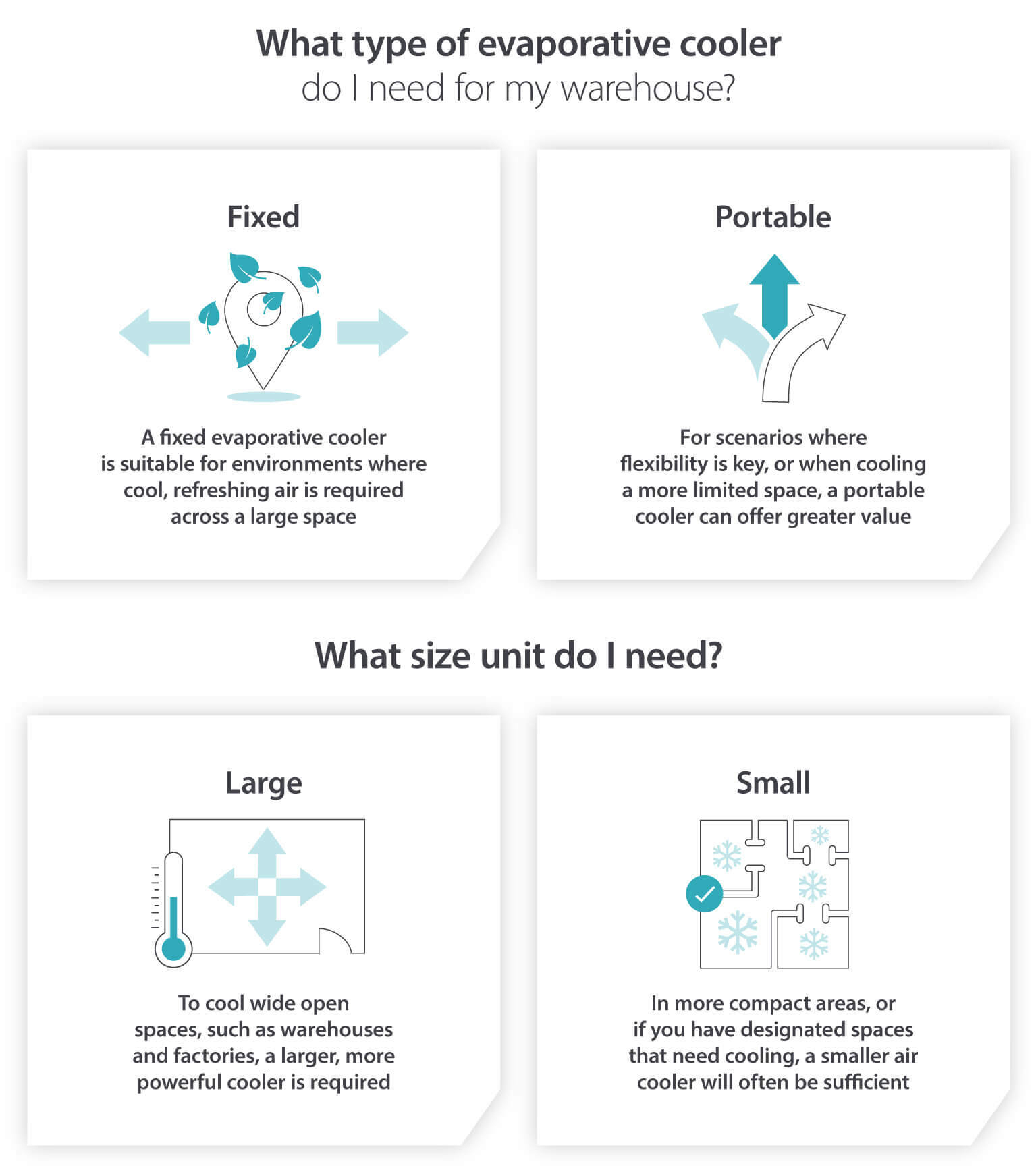
Keeping the heat at bay in your warehouse
Keeping warehouses cool can be costly and challenging without the proper technology or techniques. However, ensuring your workspace operates in safe and healthy parameters is both a legal necessity and crucial to preserving the health and wellbeing of your employees.
To help you create a comfortable environment for workers throughout your warehouse, employ some of the techniques we have discussed alongside an evaporative cooling unit from a trusted brand.
With more than 20 years of experience, Biocool is a leading name in the world of air cooling. Our innovative equipment delivers unmatched reliability, energy efficiency and usability across our full range of units.
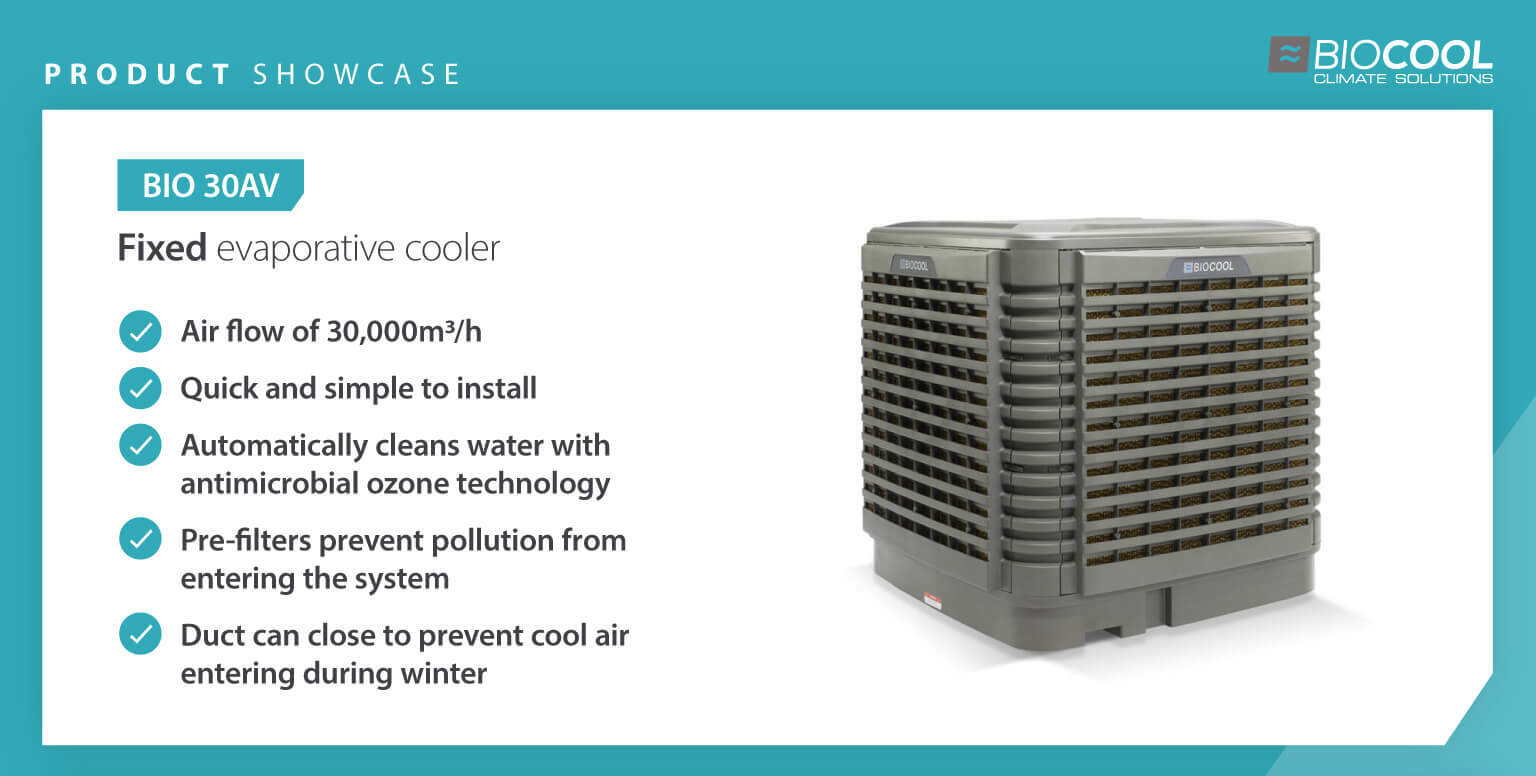
As well as our effective technology and our variety of solutions, warehouse owners trust Biocool because:
Our devices can be remotely operated in groups of up to 10 at a time using our Smart City Cooler controller
We utilise only the highest quality materials to ensure all of our devices are dependable and reliable
We can analyse, measure and install units tailored to your specific needs all over the world
If you want to learn more about our solutions, and how they can be used to efficiently and effectively cool your warehouse, get in touch with your team today.
Related products
Featured insights

See the capabilities and benefits of evaporative cooling over alternative methods.

Evaporative cooling is key for climate control now and in the future.

Evaporative coolers reduce energy consumption by up to 90% – are they better than air-conditioners?
Need help with choosing the right solution? Our team of over 100 climate control experts can assist.
You can also reach out or join the discussion on our Social Media. Check out our LinkedIn page.
